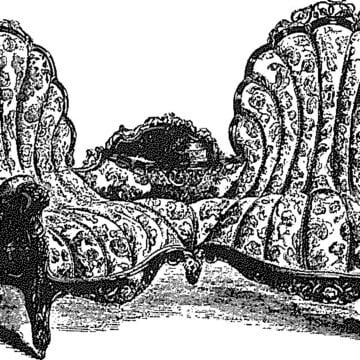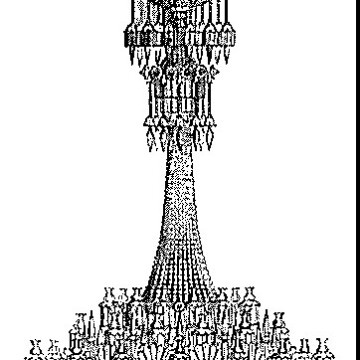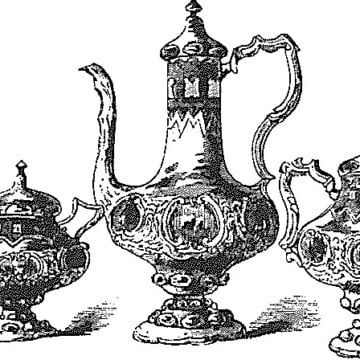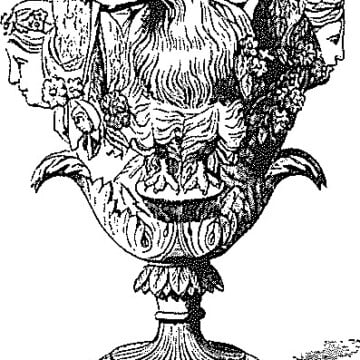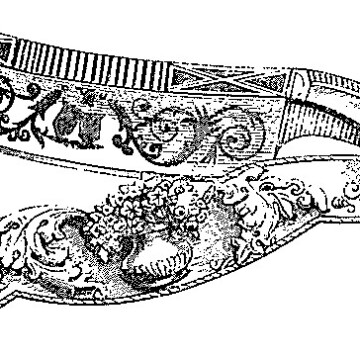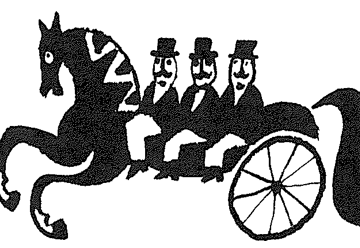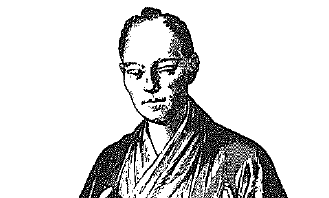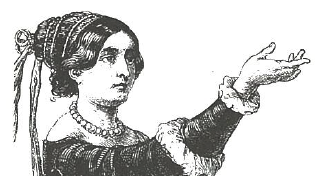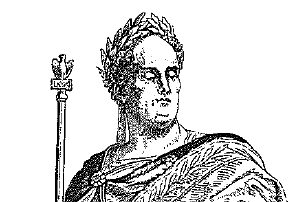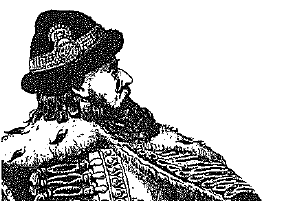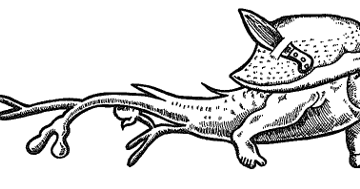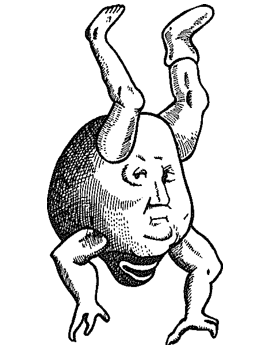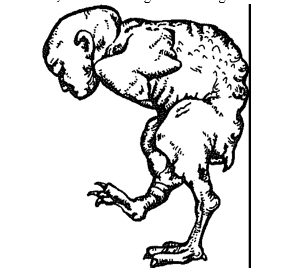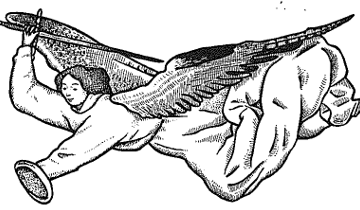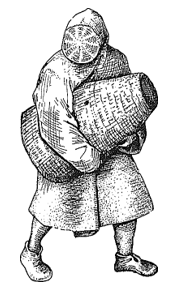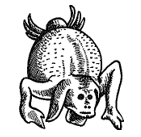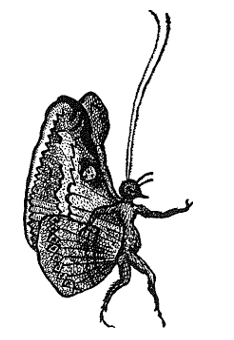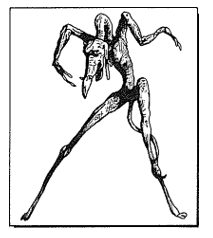Susan Jacoby: Wild Justice: The Evolution of Revenge; Harper & Row; New York. Joe McGinniss: Fatal Vision; G. P. Putnam’s Sons; New York. These two very different books are linked by a common theme—coping with evil. Jacoby presents a philosophical-historical view of revenge, and a case for its utilization under certain guarded conditions. McGinniss tells...
Category: Opinions & Views
Scholarly Smut
Peter Gay: Education of the Senses, Volume I of the Bourgeois Experience: Victoria to Freud; Oxford University Press; New York When Brantôme in the 16th century wrote a rather spicy Life of Great Ladies, or Samuel Pepys, in the 17th century, wrote his diary, neither intended these works as a history of culture, which is...
A Telltale Heart
Susan Fromberg Schaeffer: The Madness of a Seduced Woman; E. P. Dutton; New York. The specter of solipsism has long haunted the romantic temperament, and romantic eros in particular. The sense that one’s self is the locus and source of all value and meaning in the universe has characterized both the critical celebrations and the...
Horrors in the Age of Disbelief
Stephen King: Pet Sematary; Doubleday; New York. If it is true that popular literature, in however unexamined a fashion, embodies many of the presuppositions of an age, then the last decade and a half’s spate of supernatural shockers raises some intriguing questions. According to the higher wisdom of the academy, for instance, the creature known as...
Consequences of Misused Terminology
Dennis Prager and Joseph Telushkin: Why the Jews?: The Reason for Antisemitism; Simon & Schuster; New York. The authors identify “the first recorded reference to Jews in non-Jewish sources” as a report an Egyptian king caused to be written 1200 years before Christ. “Israel is no more,” it boasts. Israel has proved somewhat more resilient...
From Nonsense to Understanding
Who Were The Fascists: Social Roots of European Fascism; Edited by Stein Ugelvik Larsen, Bernt Hagtvet, and Jan Petter Myklebust; Distributed by Columbia University Press; New York. Richard F. Hamilton: Who Voted for Hitler?; Princeton University Press; Princeton, NJ. Who Were The Fascists consists of more than 800 pages of papers (replete with notes) which...
Dreams of Avarice
Ivan Fallon and James Srodes: Dream Maker: The Rise and Fall of John Z. Delorean; G. P. Putnam’s Sons; New York. Elizabeth Drew: Politics and Money: The New Road to Corruption; Macmillan; New York. Ethics in America, a recent Gallup survey conducted for the Wall Street Journal, finds that business-class marijuana smokers are twice as...
The Crisis of Controlled Thinking
A General’s Life by Omar N. Bradley and Clay Blair; Simon and Schuster; New York. General of the Army Omar N. Bradley’s military career spanned a half-century of dramatic change for the United States. When he entered West Point in 1911, the United States had few military interests beyond its borders; when he retired in 1953,...
Video Clones
Television created a subgenre of music a few years ago that can be designated as “artificial, nonexistent, techno-pop,” which must be differentiated from the succeeding, garden variety of techno-pop aired today by the human/machine combinations known as the Eurythmics, Flock of Seagulls, etc. The original includes the music of The Monkees, that group of well-scrubbed...
The Victory of Unvanquished Losers
The Passionate War: The Narrative History of the Spanish Civil War, 1936-1939 by Peter Wyden; Simon and Schuster; New York. History has not been kind to the radical left, not because modern revolutions have invariably failed, but because they have frequently succeeded. So deplorable has been the record of revolutions in power that those who...
Old & Old as New
Preservation Hall Jazz Band of New Orleans, LA; Volume II. Preservation Hall Jazz Band of New Orleans, LA; Volume III Linda Ronstadt and the Nelson Riddle Orchestra; What’s New; Electra/Asylum Records. On the back cover of Volume Ill, the entire Preservation Hall crew is grouped around a table on which is mounted a feast of...
Images, images, ima…
The Work of Atget: The Ancient Re gime; The Museum of Modern Art; New York. Bill Harris: New York at Night; Stewart, Tabori & Chang; New York. Robert Freson: The Taste of France; Stewart, Tabori & Chang; New York. Ansel Adams: Examples; New York Graphic Society/Little, Brown; Boston. William Manchester: One Brief Shining Moment: Remembering...
The Ring and the Brush
Vision and Painting: The Logic of the Gaze by Norman Bryson; Yale University Press; New Haven, CT. Western painting—at least that which was produced before the advent, or onslaught, of photography in the 19th century—shares a characteristic with a trinket that could once be found in cereal boxes and gum ball machines: the flicker ring....
Of Death and Diapers
Our Endangered Children: Growing Up in a Changing World by Vance Packard; Little, Brown; Boston. Who Will Take the Children? A New Custody Option for Divorcing Mothers—and Fathers by Susan Meyers and Joan Lakin; Bobbs-Merrill; Indianapolis. Secular liberalism is the supreme doctrine of the sovereign self. As such, its failures are particularly obvious at the...
The Remnants of Realism
Philip Roth: The Anatomy Lesson; Farrar, Straus & Giroux; New York. Louis Auchincloss: Exit Lady Masham; Houghton Mifflin; Boston. In the opinion of Tom Wolfe, “the introduction of realism into literature…was like the introduction of electricity into machine technology. It was not just another device. It raised the state of the art to a new magnitude.” If...
Fads, Facts & Fools
The Fifth Generation: Artificial Intelligence and Japan’s Computer Challenge to the World by Edward A. Feigenbaum and Pamela McCorduck; Addison-Wesley; Reading, MA. The Rise of the Computer State by David Burnham; Random House; New York. A few years ago, CB radio antennae sprouted on the roofs and trunks of autos like alien growths from an...
Knuckling Under & Soaring Free
Border Crossing: The West and Russian Identity in Soviet Literature 1917-1934 by Carol Avlns; University of California Press; Berkeley. Poems by Anna Akhmatova, Selected and translated by Lyn Coffin; W. W. Norton; New York. In Border Crossings Carol Avins, associate professor of Slavic language at Northwestern University, grapples with a question that has long aggravated...
Schizophrenia & Politics
The Confidence Gap: Business, Labor, and Government in the Public Mind by Seymour Martin Lipset and William Schneider; The Free Press; New York. ” American public opinion,” Theodore Roosevelt once said, “is a vast ocean. It cannot be stirred with a teaspoon!” Since then, assorted experts have tried, with increasingly sophisticated tools, to measure the...
Maturing (& Remembering) in Print
Sam Holman by James T. Farrell Prometheus Books; Buffalo, NY. Achieving self-definition through self-division is a truly impossible mission, but the cordless ego of contemporary liberalism continues to try to repopulate the world with its own image. That the result would be a universe of images reflecting a totalitarian state does not disturb the liberal...
Diplomacy and Fatuity
Lately our national leaders seem to have taken it into their heads that their first obligation upon taking office is to get ready to write their memoirs once they leave it. We’ve had Nixon’s and Johnson’s, Kissinger’s massive volumes, and now Vance’s and Brzezinski’s. Jimmy Carter reportedly has a high-tech memoir in preparation, the entire...
Cracked Crystal Balls
The forecasters have had a bad year. That uncertainty of acuity that characterizes those who predict the weather has long been obvious; the predictions of their brethren in the field of economics are similarly infamous. President Reagan’s economic policies were supposed to make 1983 a disaster, but the economy is rapidly improving. The only worrisome...
Twisting & Turning Totalitarianism
As the year in which George Orwell’s masterpiece was set approached, a wave of critics, eulogists, and scavengers emerged. 1984 is a work hard to attack directly, though that has been done, and some who profess to be praising Orwell’s work would really prefer to bury it. E. L. Doctorow, in a recent Playboy article, provides a...
Where’s the Baking Soda?
Nora Ephron is a genius at turning her personal life in to cash. In her essays, which she has collected in previous volumes, she has taken us to events and places including her college reunion, therapy group, and her amniocentesis. However, take away her individualized experiences and the essays become identical to those of every...
Erasing Mason-Dixon
The South has an enduring status as a region somewhat separate from the main thrust of American life. The tension between agrarian and commercial impulses in American society, epitomized by the yeomen idealized in Thomas Jefferson’s Notes on the State of Virginia and the striving industrial class whose rise was promoted by Alexander Hamilton’s Reports as Secretary...
Catastrophic Chic
The wave of articles and books concerning nuclear-weapons policy has reached flood stage since 1981 in the wake of the protests launched by the born-again peace movement. The timing of this effort provokes suspicion. It is hard to take seriously as pacifists those figures who mix their opposition to American military policy with support for revolutionary...
Bouillabaisse by Ear
Years before many Americans noticed him, France’s socialist president made a career while provoking contrary sentiments. He evidently prefers not to be understood. Conservatives governing America must nonetheless decide what to think about a ruler who supports us and opposes the Soviets in Europe while opposing us and supporting Soviet allies in Latin America. This biography...
In Focus – Politicians of Piety
Upon his return from conversing with God upon the top of Sinai, Moses began the work of reclaiming straying Israel by demanding, “Who is on the Lord’s side?” Upon their return from ecclesiastical conferences held at somewhat lower altitudes and with rather less distinguished guest speakers, thousands of American and European clergy men are now...
Strange Gods
For most modem Westerners, the word idolatry conjures images of distant lands or times: saffron-clothed Oriental monks prostrate before golden Buddhas, ancient Aztec priests plunging their daggers into helpless virgins atop monumental temples, or iniquitous Israelites cavorting before Aaron’s golden calf in the Sinai. Certainly, the cultural dominance of Judea-Christianity has made these types of...
In Focus – Mixed Drinks & False Faiths
To a world of parched souls, Jesus Christ offered the Water of Life. Unlike club soda, however this Water is not a good mixer: in order to refresh, it must be taken straight, and on the Rock For centuries, men have attempted to concoct heady new “Christianity-and-” brews, but the disappointing result is always temporary...
The Diaphanous Bud
There are innumerable ways to approach The Name of the Rose. Its author, Umberto Eco, is an Italian, a professor of semiotics at the University of Bologna. The book is a best-seller in Italy, France, Germany, and here; it has received awards including the Premio Strega, the Premio Viareggio, and the Prix Medicis. The book, translated into...
Avoiding Questions
The American Novel and the Way We Live Now is a gem, one of those concise little books that coruscate with gleaming wisdom and flashes of insight. As the title suggests, it is a study of certain features of the contemporary American novel, a commentary on prominent aspects of contemporary life, and an exposition of the connection between the two. This...
Liberal Culture – The New Higher Criticism
Among all those courageous spirits who forsook religious and traditional norms in favor of the beatific self-fulfillment promised by the sexual revolution, the names of William Masters and Virginia Johnson have long been invoked with deep reverence. As one sexologist in New York City explained: “Masters was the prototypical godlike figure that people hesitated to...
Screen – Nobody Knows the Trouble I’ve Seen
I want to get out while I still can / I want to be like Harry Houdini / Now I’m the Invisible Man. –Elvis Costello In Reds, writer-director-producer-actor and all-around polymathic performing pygmy Warren Beatty felt that he could achieve veracity in his untellable, tedious tale of John Reed and his Amazon queen by interrupting the...
Exceptional Insight
As a distinctively modern genre, the short story does not require any earth-straddling heroes, merely ordinary people. It does require, however, an author with extraordinary perception of how small events may reveal a spark of the transcendent–or a shadow of the fiendish–even in dry goods clerks or grade-school teachers. Maxine Steinman was such a rare writer....
Waste of Money – Cape Cod Babble
In his last novel, The Orchids, Mr. Cook wrote about nazis. His latest production, Tabernacle, concerns itself with a group of people he evidently finds just as awful: the Mormons. A resident of Cape Cod, Mr. Cook obviously hasn’t spent much more time with Mormons than he had with nazis, so his portrayal of them is even more superficial...
Screen – Once Upon a Time in the West Coast
A cultural paradigm should be a positive one, an object that, through its very being, encourages emulation. If that model is a man or woman, a hero or a heroine, then that person should, at all visible times and in all apparent ways (i.e., let’s acknowledge privacy as a personal need, People and National Enquirer to...
Commendables – A Man Apart
Jorge Luis Borges once observed that ideally–given an omniscient observer–”an indefinite, and almost infinite” number of biographies could be written about a man, including “the genealogical biography, the economic biography, the psychiatric biography, the surgical biography, the topographical biography.” These and other types ( e.g., the sexual biography) depicting insignificant personalities roll from the presses at...
Recycling Refuse
What do Groucho Marx, Lech Walesa, Oriana Fallaci, Johnny Carson, Ted Patrick, G. Gordon Liddy, Jean-Paul Sartre, Henry Fonda, his daughter Jane and son-in-law Tom Hayden, Ed Koch, Roman Polanski, Robert Redford, Salvador Dali, William Shockley, Robert Garwood, Ayn Rand, Ian Fleming, Roane Arledge, Robert Shelton, Alex Haley, Henry Miller, Arnold Toynbee, and William F....
Commendables – Subtlety vs. Six-Guns
In 1893 at the Chicago World’s Fair, Frederick Jackson Turner created a landmark in American historiography by articulating his thesis that the frontier experience had produced “the forces dominating American character.” Especially during the last 20 years, many historians have challenged the validity of Turner’s views, arguing that European culture remained the primary influence upon American...
Multiple-Choice Quandaries
The necessity of choosing is a fact of life. At even a tender age, one must choose between a doll or a tea set, a wagon or a tricycle, Captain Crunch or Frosted Flakes. As one becomes older, the choices become more difficult and more significant. When one is wise enough–lucky enough–to choose well, things remain...
Liberal Culture – Neo-Salvation
At a recent gathering in San Francisco, the National Council of Churches considered an application for membership from the Universal Fellowship of Metropolitan Community Churches, which teaches that homosexuality is “a gift from God.” Most of the 27,000 members of this church are so gifted. In championing the cause of this denomination, liberal Methodist theologian...
Making Hay with the Southern Sun
Posthumously, William Faulkner has achieved a celebrity that, if we take him at his word, he despised and eschewed, but which seems inseparable from modem commercial culture. Every second man in the street, who can’t remember who is currently Vice-President, recognizes Faulkner’s name as that of a famous writer. Every lumpen intellectual who once read...
Speculations on at Tendentious Science
It is a widespread belief that we can learn lessons from reading history. Of course, it is not often said what it is that we can learn, and historians are divided as to what the lessons of history really are. The opinion of most seems to be that we should read history in order to observe its ironies. That...
Of Communists and Marxists
Maurice Isserman is one of the more resilient members of the radical generation that came of age during the 1960’s. Although his apocalyptic ambitions were frustrated, he refused to succumb to gloom, setting out instead in search of a “tradition that could serve as both a source of political reference and an inspiration in what...
Missives About Man
Today we hear a great deal about culture. To judge from what we read, it can be almost anything and can be unearthed almost anywhere. There are, for example, physical, pop, ethnic, religious, aesthetic, academic, folk, popular, teenage, European, Latin, Asiatic, and American cultures–to name just a few. Various forms of it can be spotted...
Sighting Sylphs and Stalking Sense
One of the primary functions of literary criticism is to impose a certain order on the subject, the text. In a very basic sense, it can be thought of as a set of instructions for the reader of the text, not unlike those packed along with a dishwasher or a swing set. However, there is...

